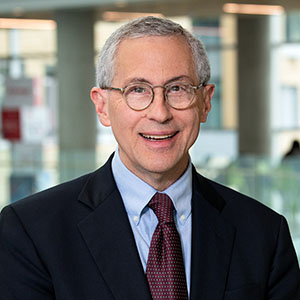
Faculty Feature Jay Apt
By Prathit Dave
Media InquiriesScott Institute faculty affiliate Jay Apt is an emeritus Professor at Carnegie Mellon University’s Tepper School of Business and in the CMU Department of Engineering and Public Policy. Professor Apt received an A.B. in physics from Harvard College in 1971 and a Ph.D. in physics from the Massachusetts Institute of Technology in 1976.
He and Professor Granger Morgan manage the Carnegie Mellon Electricity Industry Center (CEIC), which works to address the strategic problems of the electricity industry. CEIC was established in August 2001 after an extended competition sponsored by the Alfred P. Sloan Foundation among a number of research universities. CEIC produces a cadre of well-trained graduate student researchers and an additional mission that includes the development of university courses, special topic short-courses, and curricular advice for training programs. When Professor Ramteen Sioshansi joins CMU in January, he will direct CEIC, with Professors Granger Morgan and Nick Muller as Associate Directors.
Beginning in 2014, Apt led the RenewElec project. This four-year $2,200,000 project was a collaborative effort funded by the Doris Duke Charitable Foundation, the RK Mellon Foundation, the U.S. Department of Energy’s National Energy Technology Laboratory, the Electric Power Research Institute, and the Heinz Endowments. During this project in collaboration with Scott Institute director Jay Whitacre, he supervised several graduate students researching batteries as part of the technologies that enable renewable energy integration. A summary of the results of the RenewElec project appears in a book, Variable Renewable Energy and the Electricity Grid. This book was co-authored by Jay Apt and Scott affiliate Professor Paulina Jaramillo. The book provides a detailed review and analysis of the technical and policy options available for managing variable energy resources such as wind and solar power.
Apt’s research is focused on the current state and future of the U.S. electric power industry and has spanned basic, applied, and policy research.
The first focus is electric power restructuring (or liberalization as it is known in Europe; also known in the U.S., somewhat inaccurately, as deregulation). Current work in this area is on design of electric power markets with substantial amounts of low or zero marginal cost generation and storage and, with former Ph.D. student Luke Lavin, markets that incorporate statistically-determined reserves.
The second focus is generating electric power while reducing carbon dioxide emissions. The research has been in five main areas: 1) Wind and other renewable electric power. Current research in this topic includes determining if the inverters for utility-scale photovoltaic generators can be used at night for transmission line reactive power support (with Ph.D. student Yamit Lavi); 2) Electricity storage; 3) Economic use of coal in a carbon-constrained environment; 4) Underground sequestration of carbon dioxide; and 5) Demand-side solutions to low carbon power. Current work in this area with Ph.D. student Yamit Lavi is investigating the extent to which solar and wind power plants can support the grid by providing grid stability services.
The third focus is the reliability of the U.S. electric power system. Apt’s team gained access to a significant proprietary data set of half a trillion records of power plant failures and used it to quantify reliability aspects of the electric power grid. He has significant recent research on the following specific topics: 1. Correlated power plant failures in North America (published work with former Ph.D. students Sinnott Murphy and Luke Lavin and Professor Fallaw Sowell); 2. The value of solar photovoltaic power to electric distribution systems (published work with former Ph.D. student Jeremy Keen); 3. Identification of distribution system phases (with former Ph.D. student Jeremy Keen); and 4. Reliability of the US natural gas system that supplies many electric power generators (with Ph.D. student Sean Smillie and former Ph.D. student Gerad Freeman).
Apt has earned multiple awards and honors for his contribution to engineering and science. He is a Fellow of the American Association for the Advancement of Science (AAAS). He received the NASA Distinguished Service Medal in 1997 and the Metcalf Lifetime Achievement Award for significant contributions to engineering in 2002. He was a member of the Electric Power Research Institute Board of Directors from 2007 through 2013. He has authored more than 120 papers in peer-reviewed scientific journals as well as two books and several book chapters. He has published opinion pieces in the Wall Street Journal, the New York Times and several in the Washington Post, including a recent one explaining a root cause of the 2021 Texas blackout.